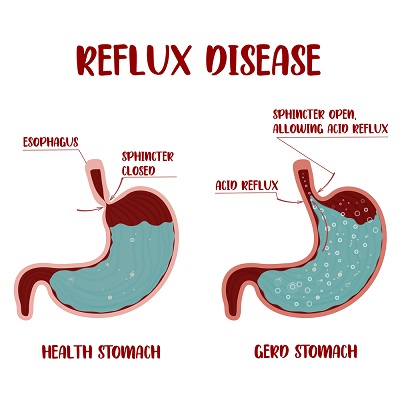GERD
 Gastric reflux disease – commonly known as GERD – is a very uncomfortable chronic ailment that affects millions of adults and infants around the world. Situated in the digestive system, it’s a disease where your stomach acid comes back up your esophagus and causes pain.
Gastric reflux disease – commonly known as GERD – is a very uncomfortable chronic ailment that affects millions of adults and infants around the world. Situated in the digestive system, it’s a disease where your stomach acid comes back up your esophagus and causes pain.
It’s the stomach acid that comes back up the food pipe that irritates your throat and results in a burning feeling in your chest. Some people have a mild form of the disease, while others suffer from GERD so painful, it feels like they’re having a heart attack.
Many people experience heartburn from time to time, but GERD is diagnosed when it become s a frequent occurrence, like two or three times a week. It’s something that might be serious, so you need to see a doctor for a proper diagnosis. Continue reading
When someone asks, “What causes Gastroesophageal Reflux Disease (GERD),” they usually mean what foods are at the root of the problem. But what you need to look at – instead of foods – are the root causes that result in your body not being able to handle certain foods.
When your lower esophageal sphincter (LES – the muscles that close off your stomach from your esophagus and keep food traveling the right way – down to your stomach) relax too much, it results in the food, along with acids and sometimes bile, to travel back up the way they came.
So what you want to know is what causes your LES to weaken in the first place. Some people have a hiatal hernia that causes GERD to occur because it allows the LES to weaken.
Sometimes obesity is the cause. Researchers believes that the extra fat around the stomach might compromise the sphincter’s ability to close off the esophageal tunnel, therefore allowing the food and acid mix to reenter the esophagus. Continue reading






